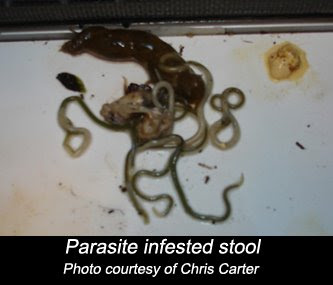Rickky
Avid Member
Hey guys I jus received an Oustalet chameleon that has worms...I am curious to know how often I can treat with panacur...I treated him 2 days ago and he refuses to eat and drink...he threw up today and the food I tried to feed him was not digested and worms came out around the food....the worms were still alive and I don't knw if I should do another full treatment or half a treatment....also how quickly does this work? Please any info will help...I'm stressing

